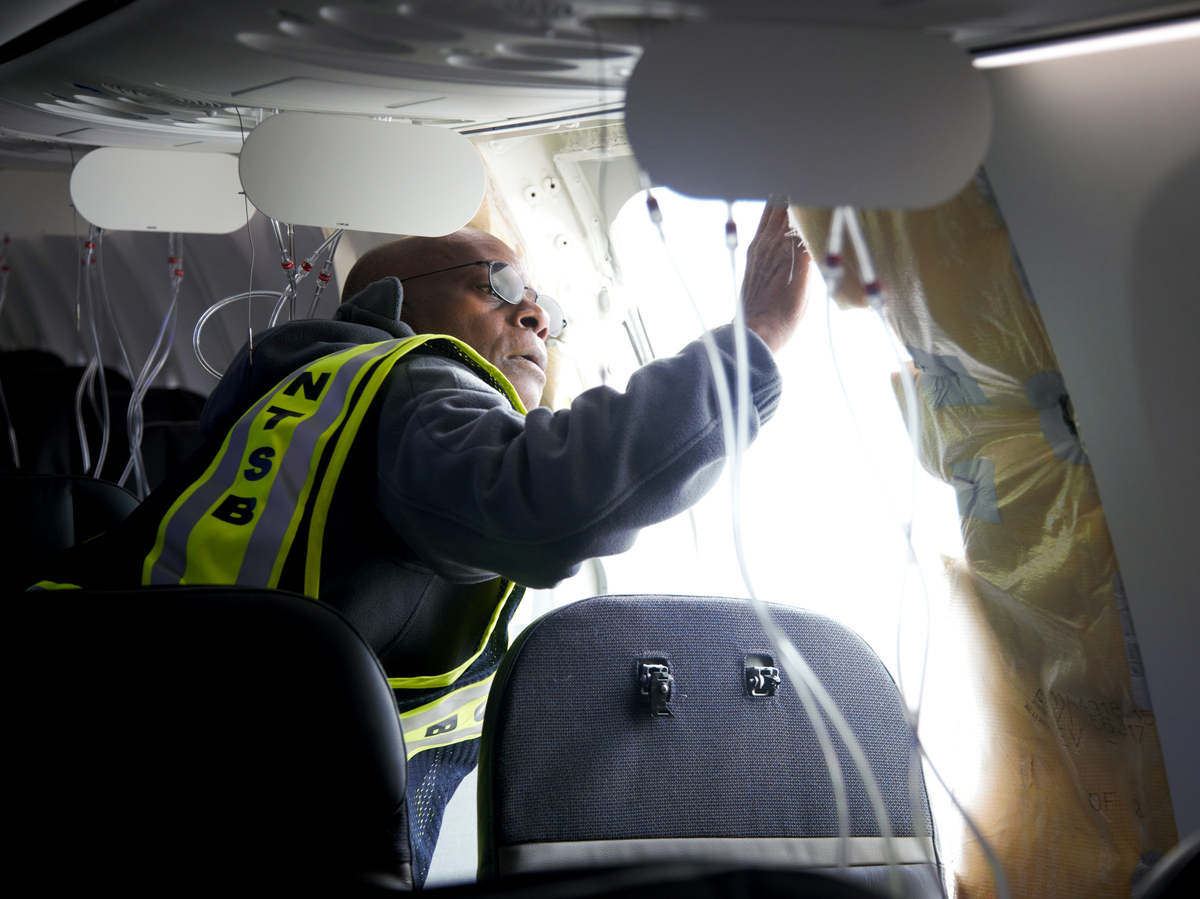
NTSB Investigator-in-Charge John Lovell examines the fuselage plug area of an Alaska Airlines Boeing 737-9 MAX. A door-sized section near the rear of plane blew off 10 minutes after the flight took off. Handout/Getty Images hide caption

NTSB Investigator-in-Charge John Lovell examines the fuselage plug area of an Alaska Airlines Boeing 737-9 MAX. A door-sized section near the rear of plane blew off 10 minutes after the flight took off.
Handout/Getty ImagesThese days when you think of Boeing, the words that come to mind might be: door plug, 737-max, grounded. But before this month's safety debacle and the Ethiopian and Lion Air crashes five years ago, Boeing was synonymous with industry and innovation, and the company enjoyed a special relationship with the U.S. government and U.S. presidents.
Former President Barack Obama joked he was Boeing's top salesman, and former President Donald Trump praised the company at a visit during his presidency.
Now that special relationship between Boeing and the US government is under renewed scrutiny.
NPR's Mary Louise Kelly talks to transportation correspondent Joel Rose about that relationship and what this latest incident could mean for the company and its oversight.
Email us at
This episode was produced by Connor Donevan. It was edited by Catherine Laidlaw and Courtney Dorning. Our executive producer is Sami Yenigun.

 Live Radio
Live Radio